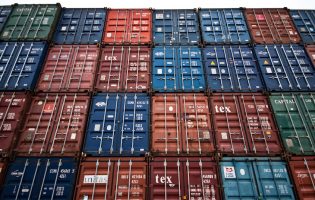
Despite Challenges, the U.S. And EU Can Save the Rules-Based Economic Order and Redefine Globalization
First there was a trickle. After years of sounding the alarm about China’s use of forced labor, economic coercion, and unfair trade practices, the U.S. government has made steady but …
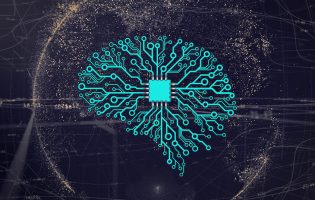
Germany and the EU Artificial Intelligence Act
The impact of the Artificial Intelligence Act (AIA) proposed by the European Commission, and currently debated at the European Parliament (EP), has been underestimated in the United States. With approximately …
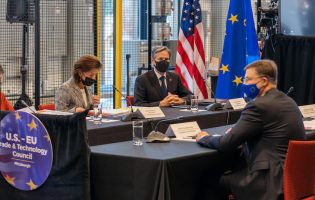
The Potential Role of the U.S.-EU Trade and Technology Council in a Rapidly Changing Global Economic Order
In an important speech on April 13, U.S. Treasury Secretary Janet Yellen stated that “…the war between Russia and Ukraine has redrawn the contours of the world economic outlook.” Amid …
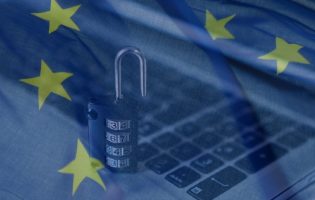
EU Data Governance Act Will Set New Standards for Public Data Access
Government institutions hold a wealth of information. Wouldn’t it be beneficial if everyone had fair access to this trove—for instance, for research to develop new vaccines or to operate driverless …

The Trade-Climate Nexus and the Future of the Global Trading System
Ahead of the UN Climate Change Conference (COP26) and the World Trade Organization Ministerial Conference, both in November 2021, Geoeconomics Program Director Peter Rashish authored a report for the Konrad …
Recent Authors
AGI provides knowledge, insights, and networks as tools to solve the challenges ahead.
Support Our Work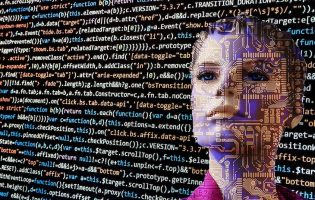
Building Transatlantic Trust for AI Innovation and Regulation
Artificial intelligence is among the most promising and crucial emerging technologies that will bring about striking changes to economic productivity, social interactions, and national security. Its significance is further accentuated …
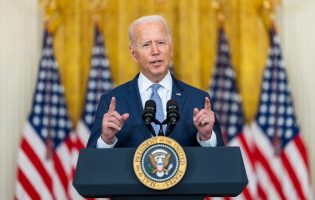
Peter Rashish Interviewed on Transatlantic Relations by German Engineering Association VDMA
In an interview with the VDMA, Germany’s mechanical engineering association, Geoeconomics Director Peter Rashish discusses the Biden administration’s approach to transatlantic economic relations, including the role of values in U.S. …

Trust as the Foundation of the Transatlantic Partnership in the Digital World
Ultra-fast 5G broadband cellular connectivity will advance a host of the technologies of the future, including Industry 4.0, autonomous vehicles, virtual reality, drones, and telemedicine, to name just a few. …
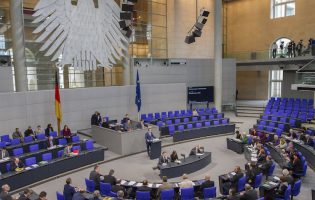
Nudging Germany toward a More Strategic Economic Role
The Social Democrats have come out on top in yesterday’s German election and are likely to lead the next government. But despite their losses, the Christian Democrats may still have …
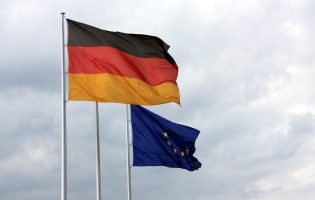
Globally Connected and Resilient – Thinking Foreign Economic Policy Strategically
Foreign and economic policies of most states can hardly be considered two separate spheres. In an increasingly multipolar world order, the return of geostrategy in the sense of 19th century-style …
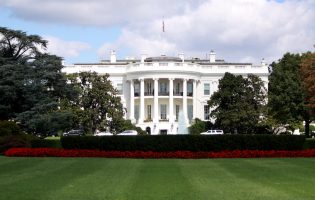
Peter Rashish Interviewed on Chancellor Merkel’s Washington, DC, Visit
Ahead of the meeting between the U.S. and German leaders, Geoeconomics Program Director Peter Rashish spoke with the Italian news site Formiche.net. In the interview, “Biden’s Bet on Merkel and …
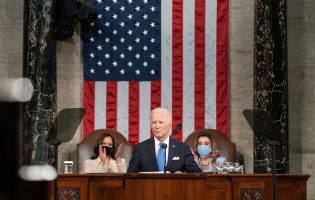
American Spending Spree—Echoes from the Past and Lessons for the Future
Negotiations are ongoing in Congress on the American Jobs Plan and the U.S. Innovation and Competition Act. The former is a $2 trillion infrastructure spending bill originally proposed in March …
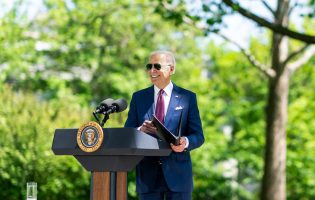
The U.S.-EU Summit Resets the Narrative on Trade
Yesterday’s U.S.-EU Summit in Brussels was remarkable simply for taking place, as it was the first since 2014. But even more striking was the way U.S. President Joe Biden characterized …

From IT Security Law 2.0 to Open RAN: Germany’s 5G Strategy Evolves beyond the Huawei Debate
On January 27, the German federal government presented the draft IT Security Act 2.0 (IT-Sicherheitsgesezt 2.0) to the German Bundestag, pushing ahead a reform that is seen by some as …




